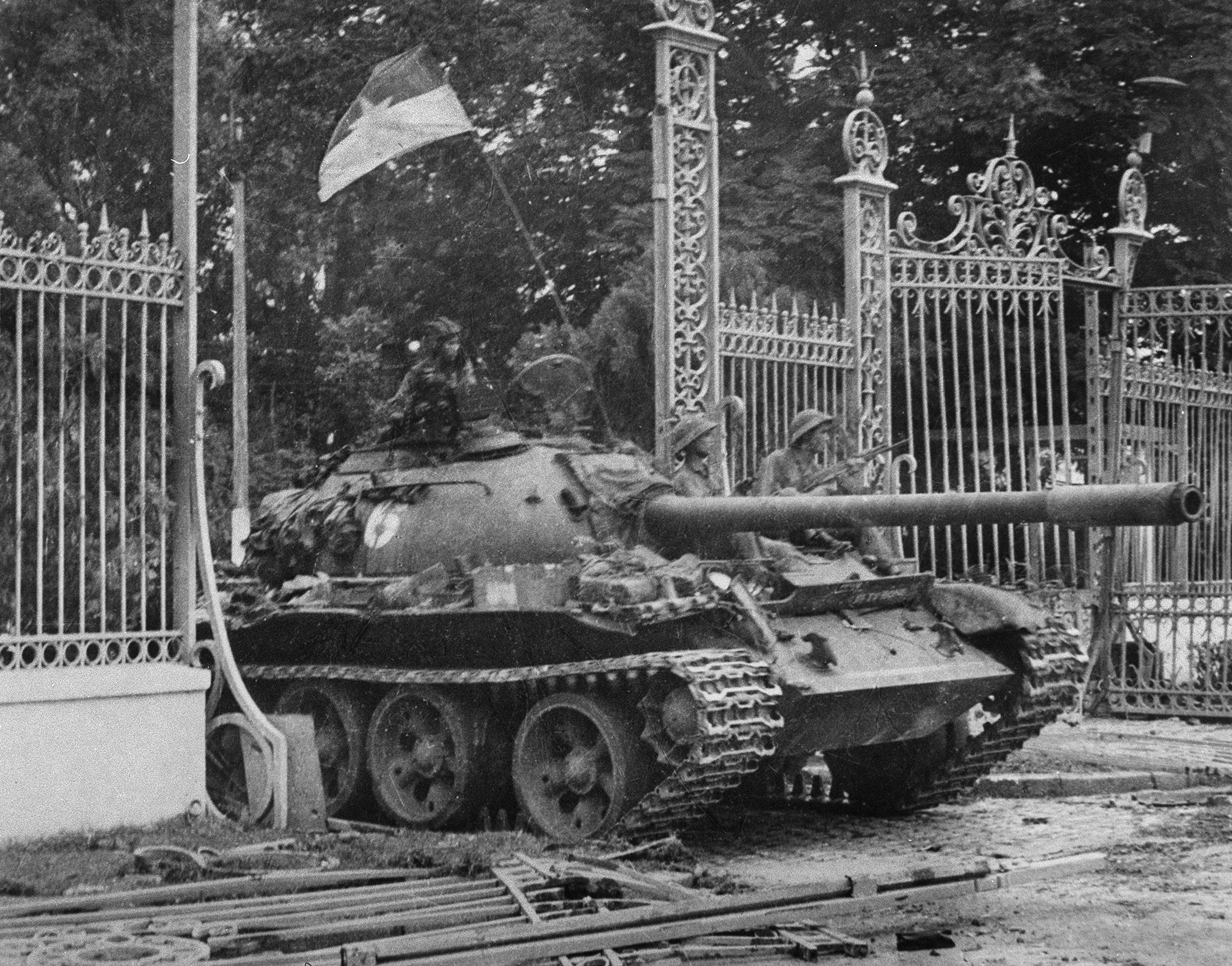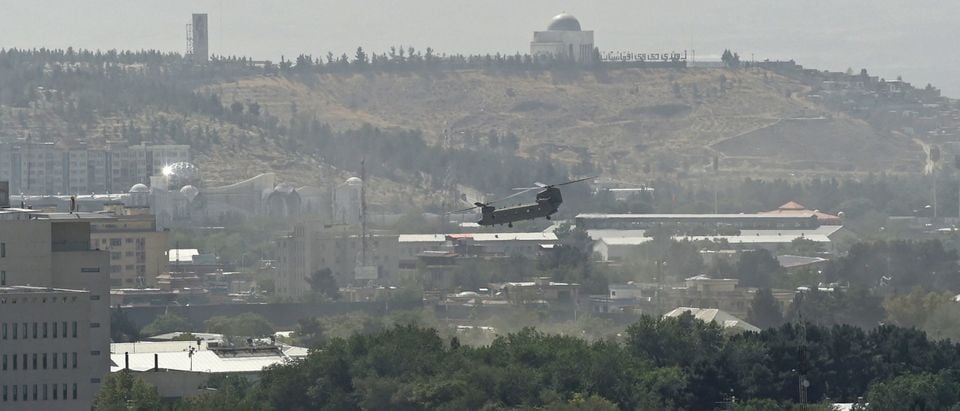The chaotic evacuation of U.S. Embassy personnel in Kabul, Afghanistan after the U.S.-backed government was toppled by the Taliban over the weekend has left President Joe Biden facing condemnation over his handling of the country’s longest-running war.
Biden said in April that all U.S. troops will be removed from Afghanistan by Sept. 11, signaling the end of a conflict that began roughly 20 years ago and has for years been very unpopular among many Americans. But the lightning-fast gains of the Taliban since the withdrawal have led critics to compare the situation to the U.S. withdrawal from Vietnam and the fall of Saigon in 1975.
PHOTO 1: US diplomat evacuate US from embassy via helicopter as the #Taliban enter #Kabul from all sides. #Afghanistan (2021)
PHOTO 2: US diplomat evacuate US from embassy via helicopter as the PAVN & Viet Cong capture of Saigon, Vietnam (1975) pic.twitter.com/YamWmzjOay
— Stefan Simanowitz (@StefSimanowitz) August 15, 2021
Just as the Afghan capital Kabul came under siege from the Taliban over the weekend after the Islamist group captured entire provinces with a momentum that stunned U.S. war planners, the Viet Cong and North Vietnamese Army had made similar gains in the closing weeks of the Vietnam War before ultimately capturing the South Vietnamese capital Saigon.
The evacuation of Americans from the U.S. Embassy complex to Kabul’s international airport, which had been stormed by hundreds of Afghans desperate to leave, also echoed the evacuation of Americans from Saigon and the large crowd of Vietnamese trying to find a way out.
Saigon fell to North Vietnamese forces on April 30, 1975, and effectively marked the end of the Vietnam War. The city was later renamed Ho Chi Minh City after the founder of communist North Vietnam. The bulk of U.S. forces in South Vietnam had been withdrawn under President Richard Nixon but it became apparent at the end of the war that South Vietnamese forces would not be capable of withstanding their northern counterparts.
Biden, then a freshman senator from Delaware, had made clear to President Gerald Ford two weeks before Saigon fell that the situation was hopeless and the U.S. should leave as quickly as possible, according to The Washington Post.
Biden had also said he “can’t imagine what could change my mind, unless it were proof of Communist reprisals against South Vietnamese after a military collapse.” He then quipped, “I question that I would even then.”

A picture taken on April 30, 1975 in Saigon shows a tank of the North Vietnamese Army smashing in the gate of the South Vietnamese presidential palace (VNA/AFP via Getty Images)
A similar situation has been playing out in Afghanistan as the country’s national army and police forces, estimated at around 350,000 men and trained and equipped at considerable cost by the U.S. and Western allies, were unable to stop the rapid advances made by the Taliban in recent weeks. (RELATED: US General Expects Terror Threats From The Taliban And Al Qaeda To Increase)
Several U.S. citizens also informed Republican Arkansas Sen. Tom Cotton’s office they were trapped behind Taliban checkpoints in Kabul, adding they couldn’t “safely reach the U.S. perimeter and have no clear option of what to do.” The U.S. Embassy urged any U.S. citizen in Afghanistan to leave immediately in an Aug. 12 security alert.
Biden predicted at a July 8 press conference that a Taliban takeover was “not inevitable” following the U.S. troop withdrawal from Afghanistan, and later dismissed a reporter’s question about whether comparisons to the Vietnam War were accurate.
“Some Vietnamese veterans see echoes of their experience in this withdrawal in Afghanistan. Do you see any parallels between this withdrawal and what happened in Vietnam?” the reporter asked.
“None whatsoever,” Biden replied. “Zero. What you had is you had entire brigades breaking through the gates of our embassy — six, if I’m not mistaken. The Taliban is not the South — the North Vietnamese army. They’re not — they’re not remotely comparable in terms of capability. There’s going to be no circumstance where you see people being lifted off the roof of an embassy in the — of the United States from Afghanistan. It is not at all comparable.”
As the U.S. in recent months formulated its planned withdrawal from Afghanistan, the Taliban continued to advance upon military bases, check posts, districts and towns across the country. The security situation in Afghanistan led some experts to worry a hasty withdrawal would result in the Taliban overrunning the unprepared Afghan government.
![TOPSHOT - Taliban fighters patrol the streets of Kabul on August 16, 2021, after a stunningly swift end to Afghanistan's 20-year war, as thousands of people mobbed the city's airport trying to flee the group's feared hardline brand of Islamist rule. (Photo by - / AFP) / The erroneous mention[s] appearing in the metadata of this photo by Zakeria HASHIMI has been modified in AFP systems in the following manner: [-] instead of [Zakeria Hashimi]. Please immediately remove the erroneous mention[s] from all your online services and delete it (them) from your servers. If you have been authorized by AFP to distribute it (them) to third parties, please ensure that the same actions are carried out by them. Failure to promptly comply with these instructions will entail liability on your part for any continued or post notification usage. Therefore we thank you very much for all your attention and prompt action. We are sorry for the inconvenience this notification may cause and remain at your disposal for any further information you may require. (Photo by -/AFP via Getty Images)](https://cdn01.dailycaller.com/wp-content/uploads/2021/08/GettyImages-1234711175-scaled.jpg)
Taliban fighters patrol the streets of Kabul on August 16, 2021, after a stunningly swift end to Afghanistan’s 20-year war (AFP via Getty Images)
In the past week, comparisons between the fall of Kabul and the fall of Saigon have become more prominent in media headlines and on social media. Republicans lambasted Biden for being on vacation at Camp David as the Taliban made further ground.
Republican Texas Rep. Michael McCaul, the ranking member of the House Foreign Affairs Committee, called the U.S. troop withdrawal “an unmitigated disaster of epic proportions” during a Sunday appearance on CNN. He also told CNN’s Jake Tapper the withdrawal is “going to be worse than Saigon.” (RELATED: President Biden Travels Back From Camp David To Address Afghanistan Situation)
But criticism of the Biden administration and comparisons to Saigon isn’t just limited to Republicans. Former Labor Secretary Rob Reich, who served in the Clinton administration, asked on Twitter last week whether anyone else noticed the fall of Kabul “is starting to resemble” the fall of Saigon in 1975.
Establishment media also went after the Biden administration for its miscalculation that the Taliban wouldn’t be able to immediately take over Afghanistan. The Politico Playbook noted last Friday that the withdrawal from Afghanistan “is getting uglier by the day,” as is the political fallout for Biden.
Washington Post foreign affairs columnist David Ignatius similarly wrote that “the chaos in Kabul carries echoes of the fall of Saigon in 1975 — precisely the image [Biden] wanted to avoid.”


